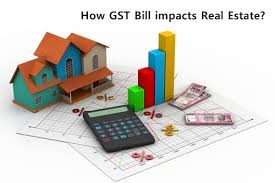GST: Good or Bad for Real Estate Sector
GST, one of the greatest reforms, came into existence after
decade long struggle and conviction, has surely created turmoil in each sector.
From manufacturing units to taxation departments, no one can escape the enchanting
it is professing. Let’s have a deep insight on what impact will be laid upon
Real Estate Sector in India by the implementation of GST.
In the recent past, real estate sector in India has seen a
tremendous growth in every dimension, be it rural, urban and sub-urban sectors.
The industry has seen increased regulations such as Real Estate bills (still in
queue for approval) etc. The construction service has been taxable under VAT
and service tax for long period of time now. The purpose of GST is to help in
the elimination of conflicting and cascading taxation structure. Even after its
progressive implementation, it is still under speculation about which tax rate
will be applicable to the real estate and construction industry.
The temporary tax bracket for real estate falls under 12%-15%.
But the final decision has not yet been taken as GST is not the only factor
determining rates. The subsiding rules as implemented under the service tax
regime and the input tax credit facility for developers
will determine if the effective tax incidence on real estate is lower or higher
under GST.
On residential Real estate, sales get
affected not just by tax but are also driven by the sentiments. Also, on
account of the trust deficit which the Real Estate Regulation & Development
Act - or RERA - now seeks to address. According to Nirmal
Singh 3C Company, higher costs under GST will lower the prevailing current home
loan rates and dampen its impact to some great extent.
It is of constant worry for buyers,
investors and developers that the final ticket size of homes will increase even
if GST is levied at 12%. Evolving market dynamics have influenced the
developers to work in a manner which is more customer-centric and delivery-focused.
Therefore, developers are waiting eagerly for further clarity on the subject.
The impact on rental housing market would
be different from what is stated above. If the Government levies tax on
residential lease under GST, the segment may suffer a huge slump over the
medium term as it would be a new start which was not in action earlier than
this. A marginal decline will be pertinent as the market will adjust to the new
trends. However, rental housing demand is end-user-driven in nature; GST’s impact
will adversely affect this sector.
On commercial office real estate market,
with existing slab of 15%, GST might be of great use if tax is decreased to 12%
as per lawyers in Nirmal Singh 3C company.
Similarly, on affordable housing which is currently
exempt from service tax. There is a huge probability that GST will not be
implemented and exemption will continue says the lawyers in Nirmal Singh 3C
company. 



Comments
Post a Comment